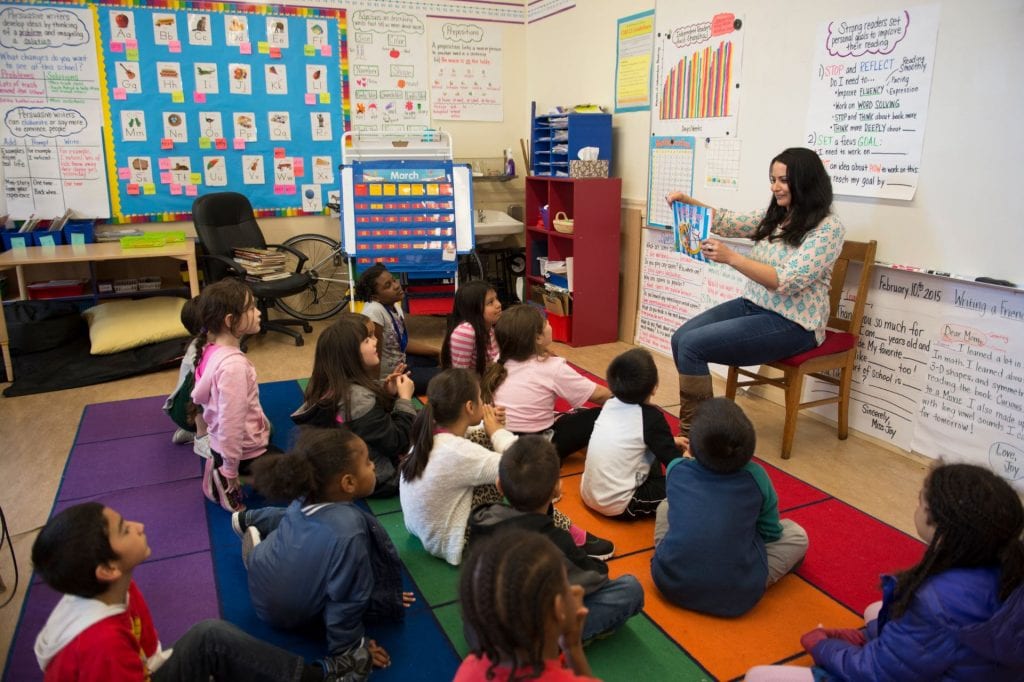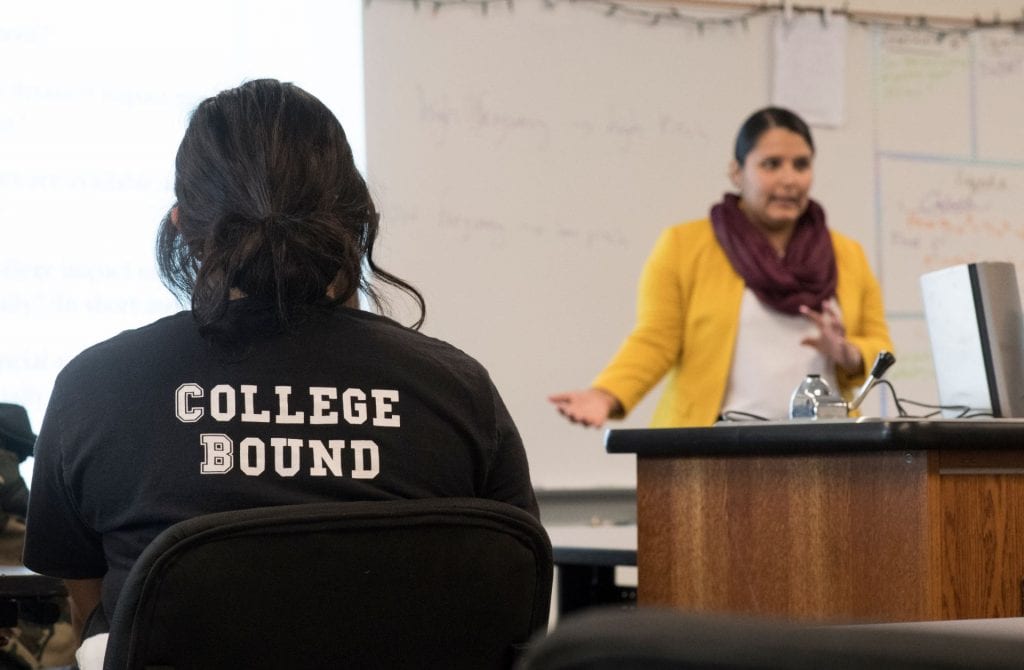Dr. Mary A. Papazian
A few months ago, an online platform known as PayScale listed San Jose State as the sixth best school in the nation for education majors in terms of salary potential. I think this is both exciting and validating for our Connie L. Lurie College of Education and a topic that warrants further discussion.
When those of us in higher education look at ourselves in the mirror, we must acknowledge that we have not always been effective in sharing the value and virtue of teaching to prospective educators. Similarly, we also have occasionally failed at developing and executing robust and effective recruitment initiatives for prospective students interested in careers in teaching to help ensure we are casting the widest net possible and bringing future educators into our programs.
Is the tide beginning to shift and the trend toward fewer students who choose education as a career path turning? We hope so—but we are not taking any chances. Our Lurie College of Education and its dean, Heather Lattimer, are working hard to identify students interested in teaching, and to develop that future generation of educators. Heather and her team know as well as anyone how vital K-12 teachers are to the nation’s future.
To accomplish these goals and to persuade interested students in pursuing education as their chosen career path, we are taking an approach that first involves enhanced outreach followed by the right tools and incentives to seal the deal.
Anyone who knows San Jose State knows our commitment to reaching out to and partnering with our community, and this issue is no exception. As an institution that began in 1857 to prepare teachers, the importance of this work is in our DNA. To that end, Heather and her colleagues are working with the local school districts, high schools, community colleges and others constantly to remind people why being an educator equates to being a change-maker. This kind of direct, personal outreach and relationship-building is both refreshing and effective.
Second, the outreach we do is now very much focused on framing education as a worthy pursuit—one that has the power to change lives. Recognizing that future educators need to be recruited into the field with a diverse range of tools, the Lurie College team is developing specific tactics such as recruitment and marketing videos. We want to work with the most potent communications tools available to reach millennials and help them understand why teaching is such a great—and vital—profession, and one they should consider.
We and our CSU colleagues often have done outreach events in the past that celebrate teaching, but now we are going beyond simple gestures and recognition. In the spring, we will hold an event that involves not only the Lurie College of Education, but also our local district partners, middle and high schools and community colleges. Each of those institutions will nominate students who they think best represent the educators of the future, and we will reward those nominees with future scholarships to demonstrate the value we see in them. Speaking of scholarships, there is also grant money and other external funding we are pursuing more aggressively to support our future teachers as they pursue their education. These are just some of the new, more innovative ways we are working to bring future educators into the fold here at San Jose State.
The high-level goal is to change the way people—our current and future students—think about teaching and education. We need for them to know that teaching is not merely a job, but a viable and rewarding career field, one they can choose to pursue in order to make a difference, do meaningful work and change lives. We know there are students at San Jose State who seek careers in social justice, careers that can help make society and communities better, stronger and more equitable. It is those students we hope to reach so that they understand there is a choice—education and teaching—available to them as they pursue their career path.
We are working to change those factors, and this is where we circle back to the significance of the PayScale rankings. Those students of ours who might consider education as a career need to know that there is a pathway for them that can culminate in something larger than themselves—but also a job that enables them to support a family, even in a region where the cost of living can be prohibitive. No one goes into teaching to become rich; we all know that. But recognition like that in the PayScale rankings helps show that they can earn a living wage as an educator. And that is important.
Having been an educator myself for much of my adult life, and having grown up with a mother who dedicated her life to teaching and whose many students came to bid her farewell at her memorial service decades after having been in her classroom, I know the importance of this issue. I am confident, that by demonstrating to our students that we will do everything we can to help them succeed as future educators, Heather and the Lurie College of Education will continue San Jose State’s rich heritage as an important educator for California’s next generation of teachers!
Earlier this month, I had an opportunity to talk to KTVU’s Gasia Mikaelian about Governor Newsom’s budget proposal as it pertains to education. See the interview below:

